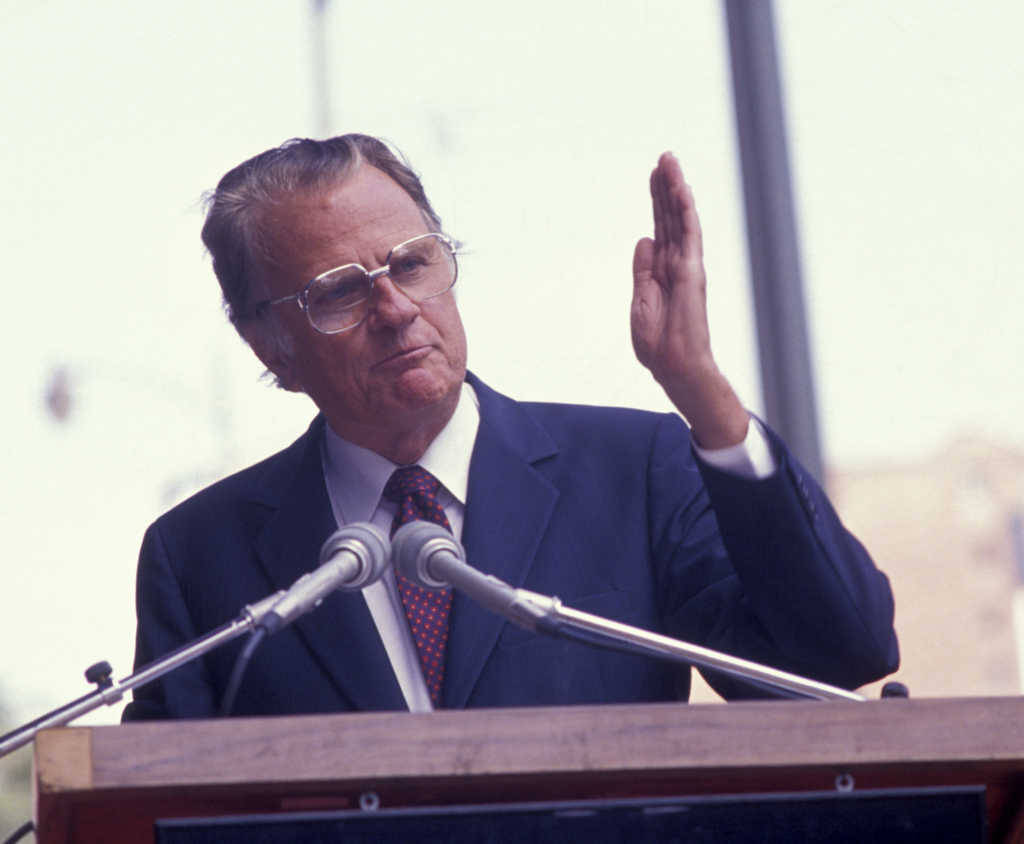The debate over Vice President Mike Pence’s personal policy of not eating dinner alone with a member of the opposite sex has created quite a stir, with conversations ensuing over whether his marital rule puts women at a disadvantage.
As it turns out, though, Pence didn’t create the policy; it was, in fact, crafted back in the 1940s and is known as the “Billy Graham Rule,” named after the well-known evangelist who followed the same standard in his own life and ministry.
Graham is said to have drafted the rule in 1948 as part of a four-pronged moral approach to ministry — a series of regulations that became known as the Modesto Manifesto, according to NPR.
The manifesto was named after Modesto, California, the location where Graham and his ministry team met that year to more deeply consider ethical approaches to their budding organization. It was an important gathering, as the resulting regulations aimed to “uphold the highest standard of Biblical morality and integrity,” according to Graham.
And among those rules was the so-called “Billy Graham Rule,” which the evangelist wrote about in his autobiography, “Just As I Am.” He explained: “We all knew of evangelists who had fallen into immorality while separated from their families by travel. We pledged among ourselves to avoid any situation that would have even the appearance of compromise or suspicion. From that day on, I did not travel, meet or eat alone with a woman other than my wife.”
But what about the other safeguards that no one seems to be talking about?
While the rule about not meeting alone with women was the second in his list of four, the first regulation in the Modesto Manifesto involved finances. Graham explained that his team pledged to do all they could to avoid any abuse of finances and to depend on local monies raised rather than pushing offerings.
The other two rules surrounded the evangelist’s policy not to criticize local churches and pastors and his pledge to release accurate public reporting on the impact of his ministry.
“The fourth and final issue was publicity. The tendency among some evangelists was to exaggerate their successes or to claim higher attendance numbers than they really had,” Graham explained. “This likewise discredited evangelism and brought the whole enterprise under suspicion. It often made the press so suspicious of evangelists that they refused to take notice of their work. In Modesto we committed ourselves to integrity in our publicity and our reporting.”
In the end, Graham wrote that these principles were always things he had stood by even before the manifesto was drafted, but that organizing their thoughts in this manner brought peace to the team’s “hearts and minds” and set each member on a trajectory toward ensuring that “integrity would be the hallmark” in both the leaders’ lives and ministries.
You can read a full and complete history of the so-called “Billy Graham Rule” here.
(H/T: NPR)
—
Other Must-Read Stories:



